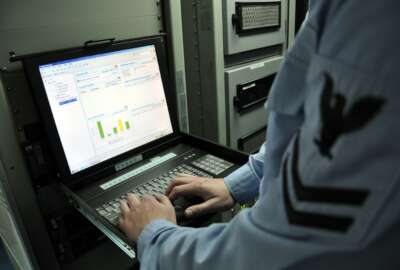Biden’s pick for Pentagon’s S&T position pledges to reduce barriers to entry for small businesses
Aprille Ericsson, President Joe Biden’s nominee to be the assistant secretary of defense for science and technology, told lawmakers that streamlining processes...
Aprille Ericsson, President Joe Biden’s nominee to be the assistant secretary of defense for science and technology, told lawmakers that streamlining processes for small businesses to engage with the Pentagon will be her top priority if confirmed.
“I understand that some of the problems that the Department of Defense has with their SBIR/STTR programs are very similar to what we’ve experienced in NASA. So bringing those lessons learned to this community would be an asset,” Ericsson told lawmakers during her confirmation hearing Tuesday.
Sen. Angus King (I-Maine) urged Ericsson to set up a listening program and figure out “where the bottlenecks are, where the problems are and why a 12-person engineering firm that’s onto something important is simply not going to bother coming to the Department of Defense.”
Ericsson responded, “Senator, you know they say great minds think alike. Well, that is actually what I have in mind. I’m looking forward to having roadshows and opportunities to have workshops, and to listen and learn.”
Too often, small firms are unable to get their technology out into the field. In the so-called “valley of death,” the middle of the valley or the period where a product goes from research to production, remains the main point of failure during the production process. Ericsson said her office would strive to develop closer partnerships with small businesses and provide more support to companies traversing the valley.
“There is also this aspect of test as we fly, because you really do want to test this new innovative technology in the environment. So not kind of having those, ‘Wait a minute, we didn’t do this exactly right,’ and then have to take some steps back. That, of course, needs resources and money. And then there’s this step when you’re potentially commercializing or mass producing. Often, small businesses don’t have that capability. And we ultimately need to get thousands of them to our troops. So it’s really going to be important to help to educate and to counsel small businesses along the way. I think that’s one of the most important aspects,” Ericsson said.
The role Ericsson has been nominated for is among the three new assistant secretary of Defense positions the Pentagon established last year. Steven Wax is currently performing the duties of the S&T assistant secretary until the Senate confirms the President’s pick. If confirmed, Ericsson would report directly to Undersecretary of Defense for Research and Engineering Heidi Shyu.
Ericsson, an aerospace engineer, has worked at NASA for over three decades. In her current position as the business lead for the NASA Goddard Space Flight Center, she oversees the proposal review, selection process, and policy enforcement for the participants of the Small Business Innovation Research and Small Business Technology Transfer programs.
If confirmed, she would be in charge of a wide range of programs, including the Small Business Innovation Research and Small Business Technology Transfer programs, manufacturing technology, DoD laboratories, federally funded R&D centers, university research and STEM programs and future-focused critical technologies programs ranging from quantum to biotechnology.
Within this portfolio, Ericsson would oversee S&T programs along four lines of effort — foundations or basic research, futures or critical technologies, research protection and information management.
Ericsson said she would conduct a 100-day review of her office before making any significant changes to the current structures.
As for emerging technologies, Ericsson told lawmakers she would prioritize hypersonic weapons, artificial intelligence and quantum computing.
“I’m hoping that maybe some of the technology we’re developing at NASA, particularly with the X-59 [plane], if there’s ways that we can infuse that and bring together the two different agencies, the Department of Defense and our agency, to maybe further that technology,” she said.
Ericsson appeared before the Senate Armed Services Committee alongside Melissa Dalton, the President’s pick for the Air Force undersecretary, and Douglas Schmidt, the President’s nominee for the director of operational test and evaluation.
In written responses to senators’ policy questions, Schmidt said that even though DOT&E has long focused on major capability acquisition programs, he would strive to ensure oversight of all DoD systems acquired via the Defense Acquisition System, including business and enterprise information systems.
At the same time, Dalton pledged to modernize the nuclear triad and expand the Space Force. She faced criticism from conservative lawmakers for the Biden administration’s decision to sell construction materials for the southern border wall and the Chinese spy balloon incident.
Copyright © 2025 Federal News Network. All rights reserved. This website is not intended for users located within the European Economic Area.







